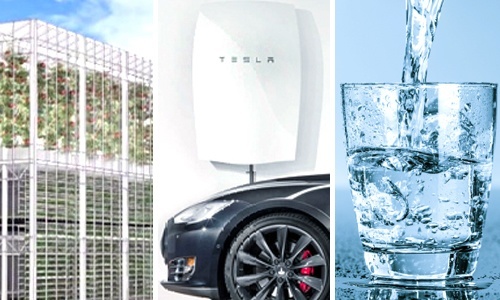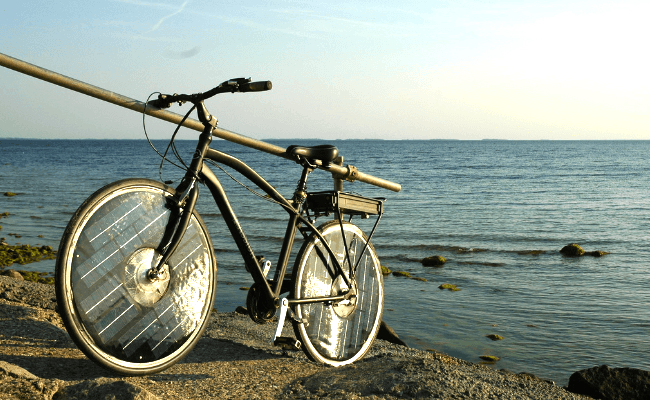

While we as individuals can do a lot of good by practicing our three R’s—reduce, reuse, recycle—we can’t do it alone. Innovation—from sustainable transportation to revolutionary battery storage device—plays a tremendous role in making positive and long-lasting change to protect our precious planet.
Check out these seven innovation that are changing the way we do business:
1. Vertical Farming
Food deserts, in which a whole neighborhood is far removed from grocery stores that sell healthy food, are a big issue in communities here and around the world. Due to the lack of fresh food, people eat fast food or pre-packaged goods that are inexpensive but high in fat, calories and sugar, and could lead to obesity, diabetes and heart disease.
However, sky-high farms are sprouting up around the world in places were where traditional agriculture would have been impossible. In places such as perpetually wintry Jackson, Wyoming, forward-thinking planners are developing a three-story hydroponic greenhouse called The Vertical Harvest that can produce more than 37,000 pounds of greens, 4,400 pounds of herbs and 44,000 pounds of tomatoes a year. This means eating a nutritious and sustainable meal could be easy as looking up.
Not only can vertical farms defy any weather, they also adapt to disaster and can even help save lives, such as Caliber Biotherapeutics in Bryan, Texas that’s growing tobacco-like plants in vertical farms to make new drugs and vaccines.
2. 3D Printing
This emerging technology has been touted as solution to many of the planet’s pressing problems. The Perpetual Plastic Project aims to turn recycled plastic bottles, cups and other stuff that too often ends up in landfills into 3D printing filament. In the U.S., plastics make up nearly 13 percent of the municipal solid waste stream.
Additionally, Michigan Technological University’s first-ever mobile, solar-powered 3D printer can create whole range of printed-products: wind turbines, hand-cranked power generators, medical braces, breast pumps, prosthetic leg covers, water spouts and more. The fact that it can be done at a fraction of the cost and in light speed is especially crucial to undeveloped nations with unreliable access to electricity. In Haiti, the nonprofit organization Field Ready is working on printing umbilical cord clamps in less than eight minutes.
Other innovators are even using 3D printers to create nutritious food to help reduce the global food waste crisis and the company Pembient is using 3D printing to make fake rhino horns to stop poaching and save the rhino from going extinct!
3. Battery Storage
For the future to be good, we need electric transport, solar power and (of course) … pic.twitter.com/8mwVWukQDL
— Elon Musk (@elonmusk) April 29, 2015
In order to curb our reliance on dirty fossil fuels that drive climate change, it’s important that we untether from Big Power. That’s why it was so revolutionary when Tesla CEO Elon Musk recently unveiled a suite of batteries that can store electricity for homes, businesses and utilities in an ambitious mission to provide pollution-free energy.
“Our goal here is to fundamentally change the way the world uses energy,” Musk told Bloomberg. “We’re talking at the terawatt scale. The goal is complete transformation of the entire energy infrastructure of the world.”
We also reported that sister company SolarCity is now offering Tesla’s new batteries at a price point that’s more than 60 percent less than previous solar power storage products.
4. Emission-Free Transportation
Is North America experiencing a biking renaissance? Americans are driving less, more cities are encouraging people to bike and electric bikes sales are soaring. We here at EcoWatch have seen a lot of amazing two-or-three-wheelers lately—from cargo bikes to this Segway with pedals—but one of our recent favorites is the “Solar Bike” created by Danish solar engineer Jesper Frausig that’s powered by the clean, green energy of the sun.
Another cool electric bike we’ve seen is the “Adam” concept bike with a detachable battery/speakers/navigation unit/power outlet on the handlebar that works—and looks like—a perfectly normal bicycle when the battery pack is taken off.

 233k
233k  41k
41k  Subscribe
Subscribe 


